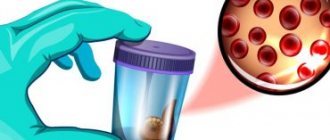Photo source: Any Lane/pexels
A proper diet is the basis for a healthy body. The culture of nutrition began to develop only in the 19th century, when doctors noticed the relationship between proper nutrition and the recovery of patients.
Over time, nutritionists appeared who began to undergo training in the basics of creating a diet to maintain human health. These professionals are sometimes called nutrition experts.
Nutritionist - who is this?
Losing weight is the most common association with the word “diet,” but professional nutritionists deal with more than just reducing a person’s body weight.
Everything a nutritionist does is related to identifying disorders of the body. They can adjust nutrition to change the ratio of fat to muscle mass. In some cases, they create a customized diet for recovery from illness or injury.
Dietitians often work collaboratively with other doctors. If a person has allergies, then he should be examined by an allergist, take tests for allergens, and then receive a special diet that excludes foods that can worsen the condition.
If the patient’s digestive processes are disturbed, then the nutritionist is the one who, together with the gastroenterologist, will select an appropriate nutrition plan
.
The services of a specialist are resorted to after operations and during inpatient treatment. Also, the help of a nutritionist is necessary for athletes participating in competitions. Proper nutrition for them is the key to success, since maintaining athletic shape requires a special diet. A sports nutritionist develops a nutrition plan for athletes.
You should also add to the list of specialists with whom the nutritionist actively interacts:
:
- endocrinologist;
- cardiologist;
- nephrologist;
- pulmonologist
A qualified specialist is a nutritionist who has completed his studies at a university. All kinds of course certificates are not a guarantee of professionalism. Only a licensed doctor can be a nutritionist.
Photo source: Elle Hughes/pexels
Who is a nutritionist?
A nutritionist understands proper balanced nutrition, knows everything about the composition of certain products, how they affect the human body, studies the positive and negative properties of food, how to prepare it correctly, etc.
A specialist in the field of nutritional science comes to the rescue when you need to change eating habits, create a diet and diet, and determine the required daily calorie intake.
A nutritionist can engage in laboratory or scientific activities:
- determine the composition of products;
- mechanism of interaction of products with each other;
- carry out analyzes confirming the safety of products;
- identify GMOs or food additives that are harmful to humans.
Another aspect of a nutritionist’s activity is the study of natural new products, analysis of metabolism in the body and its adjustment, and prevention of obesity.
How to become a nutritionist
A nutritionist is a registered physician who must have graduated from medical school.
To do this, you should enroll in one of the directions:
- "Healing."
- "Pediatrics".
After completing the training, the young specialist must enter residency, where he will receive training in the Dietetics profile. Full-time study lasts two years.
During training, the future nutritionist studies the following questions::
- organization of therapeutic nutrition;
- principles of diet therapy;
- cooking techniques.
Any doctor is obliged to improve his qualifications, this does not depend on his specialization. Therefore, after training, a nutritionist must study new diagnostic techniques, take courses and attend special conferences.
Also, distance learning for a nutritionist allows you to learn new information that can be applied to work with patients without interrupting your main job. But it is impossible to become a nutritionist remotely.
What is the difference between a nutritionist and a dietitian?
The most important difference between these two professions is that a nutritionist does not treat. He does not have the right to prescribe tests, examinations or medications.
Nutritionist:
- higher education – medical, biological or chemical;
- conducts advisory and scientific activities;
- explores how food affects the body;
- examines the chemical composition of food;
- provides consultations on product safety, the benefits of products for a particular disease;
- does not cure.
Nutritionist:
- higher medical education;
- organizes proper nutrition, develops menus, controls food preparation and product quality;
- prepares an individual diet;
- a nutritionist has the right to treat people.
Area of expertise of a nutrition specialist
Having information about proper nutrition, a nutritionist or nutritionist can help not only himself, but also his loved ones. It is worth noting that the field of family dietetics has been in great demand recently.
Nutritionists also find themselves as nutrition consultants in fitness clubs. And if there is a need to work remotely, for example, combining work with maternity leave, then today vacancies for Internet consultants and food bloggers are in demand.
Demo lessons on the program “Nutriciology”
Get access
Diagnostic methods in dietetics
- BMI determination
- Bioimpedancemetry
- Immunological method
- Genetic testing
The previously common method of calculating BMI is not the main one today, because it is not always informative. For example, BMI is increased in athletes, but this does not indicate problems with excess weight. However, BMI is still used to diagnose obesity.
| BMI | Interpretation |
| 15.5 and less | Dystrophy (severe body weight deficiency) |
| 15,5—18 | Insufficient body weight (deficiency) |
| 18—25 | Norm |
| 25—30 | Excess body weight (overweight) |
| 30—35 | Obesity I degree |
| 35—40 | Obesity II degree |
| More than 40 | Obesity III degree |
For diagnostics in dietetics, special scales are used - this method is called bioimpedansometry.
The method allows you to determine the composition of the human body: the ratio of fat and muscle in the body, the amount of free water (edema). This information is important when creating an individual diet and training regimen. The immunological method is the determination of antibodies to food products in the blood. It allows you to identify individual food intolerances in order to exclude from the diet those foods that are not suitable for a particular person.
Genetic testing provides information about the characteristics of metabolism, the causes of obesity, and even the propensity for a particular type of eating behavior.
A nutritionist is a doctor who deals with issues of rational and therapeutic nutrition. A nutritionist will help balance your diet, depending on the patient’s goals.
When is it necessary to consult a nutritionist? If you have health problems, chronic diseases, such as:
- Diabetes
- Rheumatoid arthritis
- Padagra
- Osteoporosis
- Diseases of the heart and blood vessels (atherosclerosis, hypertension, etc.)
- GERD
- Peptic ulcer of the stomach and duodenum, gastritis
- IBS (irritable bowel syndrome)
- Celiac disease (gluten intolerance)
- Hypolactasia (lactose intolerance)
- Cystic fibrosis
- Liver diseases (hepatitis, cirrhosis, hemochromatosis, cholangitis, Wilson's disease)
- Overweight
- Underweight
- Excess or lack of nutrients (proteins, fats, carbohydrates, vitamins, microelements)
- Impaired nutrient absorption mechanisms
How does an appointment with a nutritionist work?
The dietitian will collect anamnesis and ask you in detail about the lifestyle you lead, your eating habits, and the medications you take. It will clarify how being overweight or underweight affects your daily life. The dietitian will ask you questions about your complaints and the state of your health, physical activity and chronic diseases.
A nutritionist in Minsk will diagnose obesity or underweight. Diagnosis includes collecting a nutritional history, visual examination, measuring blood pressure, determining body mass index, and measuring waist circumference. The doctor will comment on your laboratory test results based on risk factors and symptoms (liver function, calcium glucose levels, thyroid hormones)
When visiting a nutritionist, you must bring laboratory tests (see list). Your doctor may recommend additional tests and laboratory tests (if necessary). For example, ultrasound, ECG. This information will help you determine which diseases affect your condition, identify risks, and prescribe the necessary treatment.
How to choose an individual nutrition program?
The goal of an individual nutrition program is to achieve a normal weight and maintain results.
A nutritionist will help you understand the programs available at the medical center and choose the one that is convenient for you, taking into account your food preferences, lifestyle, and your overall health.
A nutritionist will teach you to understand “bad” and “good” foods, identify harmful components of food, and also help you change your personal bad eating habits, tell you how to properly combine and prepare food, develop the right diet for 1, 2, 4 weeks
Healthy eating begins when choosing products in the supermarket. The doctor will give recommendations for physical activity.
What will you get from a nutritionist?
If you decide to change your life and health for the better, then you and your nutritionist Irina Petukh will definitely achieve the desired result. Maintaining a normal weight and being slim is important for maintaining your health!
“The most powerful health management tool is the fork.” /Mark Hyman/
Together we will look for the reasons for your poor health, study the tools of a healthy lifestyle, and get acquainted with therapeutic nutrition protocols!
We will develop for you an individual nutrition program for weight loss, prevention and treatment of vitamin and micronutrient deficiencies. We will help you take control of your weight, eliminate risk factors associated with poor nutrition, and maintain your health! The main thing is that you have already begun your path to health...
Nutritionist services:
1. Consultation with a nutritionist
Time: 60 minutes
- Examination and history taking.
- Evaluation of laboratory test results. ( complete blood count (without leukocyte formula); general urine test; biochemical blood test (total protein, total bilirubin, urea, total cholesterol, triglycerides, HDL, LDL, glucose, AST, ALT, serum iron, ferritin, creatinine, total calcium , magnesium, phosphorus, potassium, sodium, chlorine ; Vitamin D ; thyroid-stimulating hormone .
- Assessment of actual nutrition
- Drawing up an individual nutrition program for 14 days.
60 minutes. Cost 100 rubles
2. Extended consultation with a nutritionist + preparation of an individual diet for 7 days
Time: 90 minutes
- Examination and history taking.
- Evaluation of laboratory test results. ( complete blood count (without leukocyte formula ); general urine test; biochemical blood test (total protein, total bilirubin, urea, total cholesterol, triglycerides, HDL, LDL, glucose, AST, ALT, serum iron, ferritin, creatinine, total calcium , magnesium, phosphorus, potassium, sodium, chlorine; Vitamin D; thyroid-stimulating hormone .
- Assessment of actual nutrition
- Drawing up an individual nutrition program for 1 month.
60 minutes. Cost 150 rubles
3. Extended consultation with a nutritionist + preparation of an individual diet for a month
- Examination and history taking.
- Evaluation of laboratory test results. (complete blood count ( without leukocyte formula ); general urine test; biochemical blood test (total protein, total bilirubin, urea, total cholesterol, triglycerides, HDL, LDL, glucose, AST, ALT, serum iron, ferritin, creatinine, total calcium , magnesium, phosphorus, potassium, sodium, chlorine; Vitamin D; thyroid-stimulating hormone.
- Assessment of actual nutrition
- Drawing up an individual nutrition program for 4 weeks and adjusting the diet for a month.
- 3 consultations with a nutritionist
- Recommendations for physical activity
- 1 session of lymphatic drainage/anti-cellulite massage.
90 minutes. Cost 250 rubles
Sign up for a consultation with a nutritionist in Minsk: +375 (29) 169-75-17, +375 (17) 370-77-91
Training in Dietetics and Nutritionology
In recent years, the requirements for applicants for training in the specialty “dietology” have become somewhat stricter. The courses that existed before required a higher medical education. Now, training in dietetics is possible only at a university department and only for graduates of medical and pediatric faculties, and in some cases they are accepted for training only after completing a residency in gastroenterology.
The situation with nutritionology is somewhat simpler, because No medical education is required for training. Training is conducted by the licensed EdPro Academy of Continuing Education, and there is a choice of distance and correspondence forms, which is especially important in modern realities. Upon completion of training you will receive a state diploma. You can learn more about the training program in the specialty “Nutrition” here.
Treatment of obesity and overweight
If you are reading this material, it means you are interested in how to lose weight, how to find the reason for weight gain.
The North-Western Endocrinology Center provides professional treatment for obesity under the guidance of nutritionists-endocrinologists.
Obesity is a disease of modern lifestyle and nutrition. Some struggle with excess weight on their own, but many cannot lose weight, despite food restrictions, even starvation, and exhausting sports training.
When treating obesity, it is important to evaluate not only the nature of nutrition, but also metabolic characteristics, a person’s hormonal status and, often, genetic characteristics.
An integrated approach to the treatment of obesity allows everyone to achieve weight loss and improved well-being. In addition to losing weight, we strive to normalize metabolism and hormonal levels.
This approach also allows you to prepare for pregnancy, in some cases overcome infertility in women and men, and avoid the development of diabetes, many cardiovascular diseases, arthritis, gout, and other diseases.
Weight loss under the supervision of an endocrinologist-nutritionist gives health, beauty and prolongs youth.
Endocrinologists at the North-Western Endocrinology Center do not use questionable treatment methods; we use only methods and means whose effectiveness is recognized by the professional medical community around the world.
When you first contact a weight correction specialist, you will:
· assessment of the degree and nature of obesity based on body composition analysis;
· assessment of nutritional patterns and eating habits;
· assessment of concomitant diseases, incl. endocrine pathology;
· drawing up an examination plan to find out the reasons for weight gain and assess the state of metabolism;
· drawing up an individual weight correction plan.
It is advisable to bring to your first consultation
· all available examination results of any date;
· food diary for 3 days (write down everything you ate for 3 days - time, what you ate, how much).
Treatment is carried out according to a program based on step-by-step diet therapy with simultaneous correction of concomitant diseases and metabolic disorders. The program is a set of sequential consultations, during which individual diet therapy, selection of physical activity, vitamin therapy, and correction of concomitant diseases are carried out. The program consists of 6 consultations over 6 months.
During the program, the expected weight loss is 10 - 20% of the initial weight.
At the last consultation, a plan for further treatment and nutrition is drawn up, which the patient can carry out independently.
Purpose of the program:
· persistent weight loss;
· improvement of metabolic parameters of metabolism;
Improvement of well-being and quality of life;
· teaching the patient the principles of a healthy lifestyle at different periods of life.
Reasons for appeals
The best reason to contact us is to help prevent various ailments and realize that it’s time to start taking care of yourself before a crisis situation, and not after.
But, if you rely on patient reviews, most of them still reach the last level. Most often, overweight people already have complications of varying severity from the gastrointestinal tract, cardiovascular and endocrine systems.
Also among the popular reasons for calls are complaints about the condition of hair and nails. This can only be influenced from within the body, but not through cosmetic measures, which only temporarily improve the situation somewhat. A deficiency of certain microelements or disorders of the digestive system automatically guarantee brittle teeth, dull hair and weak nails.
Most gastroenterologists strongly advise contacting a nutritionist if the following diagnoses are confirmed in a patient:
- peptic ulcer;
- gastritis;
- colitis;
- cholecystitis.
In such cases, the nutritionist draws up a weekly menu taking into account prohibited and permitted foods.
Patients with two opposing diseases also deserve attention:
- obesity;
- anorexia.
The first group often complains that although they adhere to the basics of proper nutrition, almost spending the night in the gym, they cannot achieve the expected goal. All the difficulties here are based on complete ignorance of the laws of metabolic processes of a particular organism. It’s not for nothing that nutritionists preach an individual approach to everyone, trying to jump-start a long-dormant metabolism.
The same story applies to those who suffer from anorexia. It is especially susceptible to young girls who, in pursuit of mythical fashion standards, torture themselves with hunger strikes. To achieve their plans, they not only refuse to eat, but also take various medications without a doctor’s permission.
In such patients, their metabolism is no worse than that of the “plumpheads,” so they need help. In particularly advanced cases, they are even hospitalized in specialized clinics, where they are re-taught to eat and enjoy life.
Advice from a nutritionist will also help those who often encounter infectious and viral diseases. They will not be able to replace medications for treatment, but they will support the body within the framework necessary for accelerated recovery.
Experts who provide assistance to cancer patients work according to a similar scheme. Every year, scientists discover more and more products that have a proven anti-cancer effect. If you include them in your diet every day, you will be able to maintain health during therapy, and also reduce the risk of relapse later.
Tests that need to be taken before going to a nutritionist
It’s great if the patient comes to the first appointment with a nutritionist with a ready-made general blood test. It will give the doctor certain information about the condition of the patient’s body.
In addition, you may need:
- Blood sugar data;
- OAM;
- TANK.
Often nutritionists themselves ask their patients to take a test to determine the level of thyroid hormone. This is due to the fact that disturbances in the functioning of this organ often lead to the problem of excess weight.
Taking tests is the first step in creating a diet for a specific patient. They also allow you to identify or suspect some hidden chronic diseases and begin their treatment.










